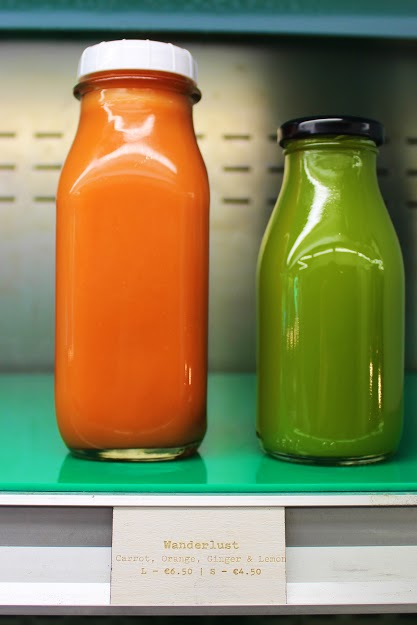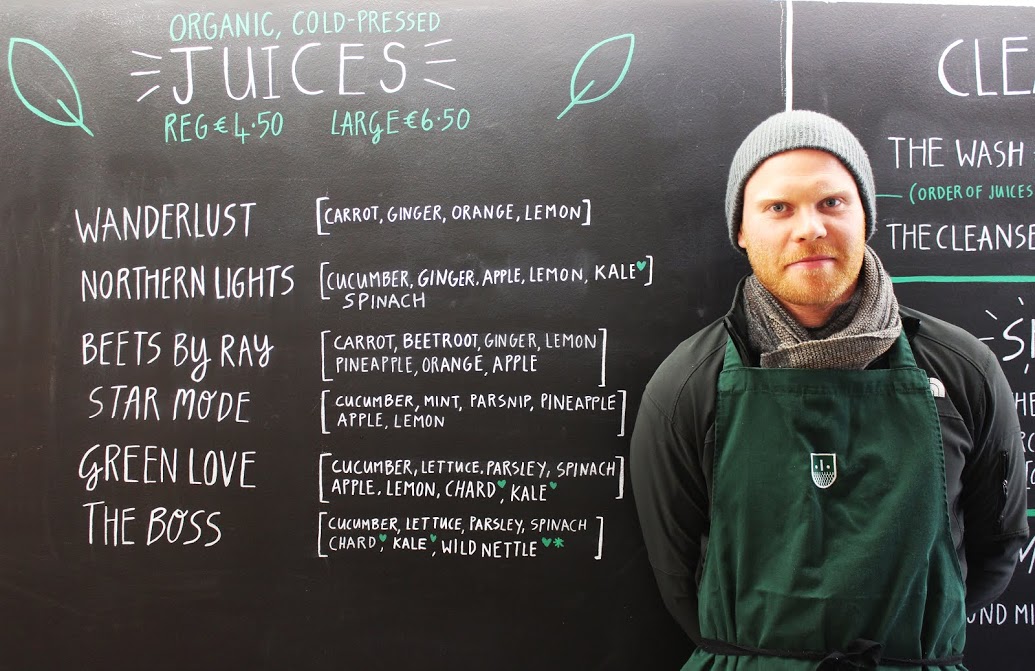James Shaw | Contributing Writer
Over the last while I’ve noticed more and more “juice-toxes” happening around me. In the last year, juicing has entered the fore of the Irish and British mainstream, The Irish Times dedicated a full feature to it in its weekend supplement and we regularly hear students extolling the benefits of going on a 3 day juice-only ‘cleanse’. In Dublin alone, Yelp shows over 40 businesses advertising as dedicated juice bars or which offer fresh juices. The trend has gained such popularity, leading it to be referred to as the “juice revolution” by a range of publications from The Daily Mail to Grazia.
Thus I decided to look into the matter and examine its self-purported health claims. I wanted to find out whether or not this new trend can be my bona fide health booster that it claims to be, or whether it’s just a fleeting way of extracting disposable income from the health conscious (nutritionally gullible). With this in mind and eager to find out more than my bare suspicions, I visited The Green Beards juice bar in Ranelagh and spoke to its co-owner, Kevin Johnstone, about the health effects of juicing, in particular the 3 day detoxes, and whether juicing represents value for money for students operating on tight budgets.

Mr. Johnstone attributed juicing’s recent rise in popularity to a combination of people becoming more health conscious and the fact that it’s a convenient way to consume your fruit and vegetables rather than preparing them from scratch. When I enquired about the nutritional benefits of that veg and fruit pulp, he assured me that their juices are made mainly with vegetables and so have a low sugar count. He added that many had carrot as a base which contains beta-carotene and is good for hair, eyes, and skin. They also use green vegetables such as spinach and kale which are alkalizing and regulate the blood. However, it is the 3-day detoxes which many students engage in as a way of cleansing their body of toxins which may have been caused by overeating of sugary foods or excessive alcohol consumption. It comes as no surprise to find that juice cleanses are popular, with it being as simple as finding recipes on sites like Juice Buff to create at home. It’s up to the individual whether they decide to use fruit or vegetables. If it tastes nice, that is more likely to keep people going with their juice cleanses.
On this matter, he said he offers such packages but admitted he wouldn’t advise people to be doing such detoxes “overly regularly”. He added that the benefit is in cutting out bad eating habits like the consumption of simple carbohydrates and that the main benefit is not in what you’re taking (the juice) but in what you’re not taking. This doesn’t attribute much benefit to the juices themselves, especially considering their cost. It seems that if this is the main benefit of juice detoxes, you would be better off simply not eating bad food for 3 days, rather than investing so much in juices specifically. I contacted Dr. David McGrath, Director of College Health Services and he seemed to share this view. He described the detoxes as “the latest dietary fad” and added that, to his knowledge, “there is no medical evidence supporting its detoxifying qualities” and that “it is in fact a 3 day fruit and vegetable diet with lots of water”. He warned that such a diet could “be associated with headache, light headedness and diarrhoea”, not helpful for any student trying to focus or concentrate.
The main benefit is not in what you’re taking (the juice) but in what you’re not taking.
I asked Mr. Johnstone about the cost of juicing and whether it offers value for money in comparison to cheaper shop bought brands like Naked and Coldpress which are around €3 each. He acknowledged that it’s not cheap(those “*toxes” average at around €80 for a 3 day supply of juice which serves all your food intake for the period) however he added that the production process is costly and that there is a lot of raw material in each product, up to 1.5kg of vegetables per juice. Dr McGrath on the other hand, merely opined that these detoxes in general “seems to be a very expensive way of eating fruit and vegetables washed down with water for 3 days”. Mr. Johnstone notes that his bar uses the coldpress method which takes as much heat as possible out of the production process and so prevents degradation of the vegetables, maximising the nutrient content which is retained. He said that Naked, owned by multi-national PepsiCo, is pasteurised and so less nutrient value is retained in the production process. He didn’t refer to Coldpress which is produced by the same production method it is named after, and which is available in supermarkets but he stated that all his juices sold are made on the day. Regarding the cost for students, he thinks that juice is good value as it gives you more energy, reducing the amount of snacks you buy and that it is an investment in your health.
“It seems to be a very expensive way of eating fruit and vegetables washed down with water for 3 days”
While I myself have never tried a juice at one of these bars (preferring my drinks at bars to be more decadent in nature), juicing seems fine as a meal replacement or as a snack. It provides a convenient way to consume a range of nutrients, albeit expensively. However, it does not provide for a balanced diet and as such shouldn’t constitute the main part of your diet but rather can be used as a dietary supplement. Given the views of Dr. McGrath and the dissaproving stares of my imaginary bank manager, I think it is better for students to avoid relying on juice detoxes at all after periods of excessive consumption. Given the almost exponential rise of juice bars in Dublin, which have capitalised on the hungover guilt of our drinking culture, and our desire for shortcuts to being healthy, it will be interesting to see if these juice bars stand the test of time. Or will they fade away, only to be replaced by whatever Fro-Non-GMO-Gluten-Free-Spiritually-Centered fad that waits around the corner.
Photography By Benedict Shegog







